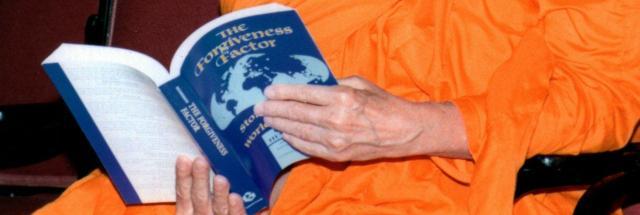KBOO 3 March 1988
There are not too many examples in history which we can point to where nations have moved beyond self-interest and certainly not enough examples of where individuals in public life have done so. On a national level, one thinks immediately of the Marshall Plan and America’s generous treatment of her former enemies at the end of World War II. On an individual level, one thinks of courageous resignations by people who disagreed with policy.
One of the most remarkable in all history, a combination of the personal and national, was brought to my attention this week with the publication of a new book ‘God’s Politician’. It is subtitled ‘William Wilberforce’s Struggle to Abolish the Slave Trade and Reform the Morals of a Nation.’
Lecky, in his work ‘History of European Morals’ describes Britain’s crusade against slavery as probably ‘among the three or four perfectly virtuous pages comprised in the history of nations, ‘ and Historian G. M. Trevelyan calls Abolition ‘one of the turning events in the history of the world.’ ‘God’s Politician’ is the enthralling story of what it took in vision, and dedication, and imagination to swing a whole country behind this new, and right direction.
It has become fashionable in some quarters to suggest that Britain ended the slave trade because it was no longer a moneymaker. But Author Garth Lean points out that quite the contrary , the slave trade was ended when it was at its most profitable. Which makes the story all the more remarkable.
I hope some movie maker picks up the rights to this book because it has all the elements of a gripping saga. It could even be a mini-series. It has bribery and corruption with political skullduggery of every kind, it has tragedy and disappointment, religion and politics and, of course, racial prejudice, it has nobility and sacrifice, and it spans quite a tumultuous fifty-year period of history that was characterized by
cruelty and decadence. Its cast of characters incudes John Wesley, who on his deathbed urged Wilberforce to persevere in the struggle and it stars William Wilberforce, the frail, sickly shrimp of a man, who in his early twenties gave up the chance to be prime minister by adopting this unpopular and giant-sized cause and who on his deathbed 46 years later was given the news that within the year all 800,000 slaves in British territories were to be set free,
As a young man Wilberforce wrote in the journal that he kept, ‘God Almighty has set before me two great objects – the suppression of the slave trade and the reformation of manners,’ by which today we would mean the whole moral and spiritual state of the country. Wilberforce felt that if the slave trade and its ramifications were destroyed, it would be a key factor in bringing a new spirit into the nation. He also felt there must be a change in people before institutions would change.
‘God’s Politician’ describes the battle to achieve both objects, and Wilberforce’s commitment to what in a best-seller which he authored he called ‘ Real Christianity.’ To give some idea of the breadth of what was achieved I would simply note that while maintaining the pressure on the slave trade Wilberforce and his colleagues promoted education for the masses, championed prison reform, attacked child labor and savage game laws, opposed flogging in the army and supported and introduced every bill in Parliament to change factory conditions, fought for Catholic emancipation and even intervened on behalf of victims in other countries including the native Americans, They also founded the Church Missionary Society and the British and the Foreign Bible Society. In the first year of their campaign they brought out two million books and by its 50th anniversary their rekgious tract society had published five thousand different titles and five hundred million copies. The work of the ‘Clapham saints’ as they were called laid the groundwork for many of the important reforms and democratic developments that followed.
It is an incredible story and wonderfully told by author Garth Lean. He has written his book, he says, to tackle one of the cruelest illusions of our day, the idea that the individual is helpless to do anything to alter events around him. He believes the world is waiting to see which countries will today produce the bands of committed people who will tackle the insuperable problems of the coming age, as Wilberforce and his friends tackled the deadlocked situation of their times.
In a foreword Chuck Colson writes, ‘Here was a Christian who put his faith into action in the political arena and persevered for years to outlaw one of the most inhumane and profitable practices in the world of his day. His battle cost not only the national self-interest but also his own. This little man with the piercing blue eyes and upturned nose stands as a giant in the modern history of the faith. He was truly God’s politician.’

